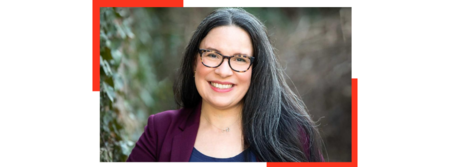At COP28, 11% of represented world leaders were women, and women only made up 38% of delegates. This disparity and the absence of women in leadership positions fails to platform the voices and experiences of 50% of the global population, who are disproportionality affected by climate change impacts. In many cases, women face higher risks and greater burden to their existing roles, responsibility and cultural norms.
At Climate Group, we drive climate action, fast. But we know progress can't be fully realised without the equal inclusion of women in all geographies and at all levels of decision making. The current business as usual approach is hindering progress toward net zero and a climate just future by viewing the crisis we face through a limited lens.
This International Women's Day theme is #InspiringInclusion, highlighting how understanding and valuing women's inclusion is essential to a sustainable future. Today, the fight for net zero and a just transition must be non-negotiables when forging a better future for all. We can't afford for global climate action to continue existing in silos, so we're working to support valuable voices, lived experiences and female actors across our networks.
To mark International Women's Day, we're celebrating women climate leaders from our global offices and network. Hear how they're making progress in the climate space and what inspiring inclusion means to them.
"This International Women's Day let's focus on... collectively finding new ways to bring in the diverse voices we need to hear in this crucial decade."
"This International Women's Day let's focus on... collectively finding new ways to bring in the diverse voices we need to hear in this crucial decade."
Here they are in their own words:
Helen Clarkson, CEO, Climate Group
There are so many incredible female leaders in the climate space and it's important their voices are heard. Climate change is a complex issue that affects people in different ways across the world, but women often face higher risks particularly in societies where they carry the responsibility for household energy, food, and water. Women can play a vital role in changing how climate change is seen and prioritised, but they need the space to do this effectively through the full range of international processes. This International Women's Day let's focus on that and collectively finding new ways to bring in the diverse voices we need to hear in this crucial decade.

Champa Patel, Executive Director Governments and Policy, Climate Group
We know that women are disproportionately impacted by the climate crisis. Whether it is food, security, livelihoods or jobs, women are at the frontlines of dealing with the impacts of extreme weather events and climate shocks every single day. Yet their voices continue to be underrepresented in international meetings and global agreements on what needs to be done. Climate inclusivity is not a nice to have - it is essential. We can't have effective solutions, where the majority of those affected are not able to say what is needed. What drives me to action is ensuring women's voices, women's experiences, and women's skills and expertise continue to shape and influence climate action. It is the only way forward.

"Empowering women in climate leadership positions promotes gender equality and contributes to more inclusive decision-making processes."
"Empowering women in climate leadership positions promotes gender equality and contributes to more inclusive decision-making processes."
Sophia Kianni, Founder of Climate Cardinals, Youngest United Nations Advisor
The importance of women's inclusion in climate leadership roles cannot be overstated. Women bring diverse perspectives, skills, and solutions to the table, enhancing the effectiveness of climate action. Their inclusion fosters greater innovation, resilience, and sustainability in addressing environmental challenges. Moreover, empowering women in climate leadership positions promotes gender equality and contributes to more inclusive decision-making processes.
What inspires me to continue advocating for climate inclusivity is the urgent need for collective action to address the climate crisis. Seeing the resilience and determination of individuals, especially women, who are leading efforts to mitigate and adapt to climate change fuels my commitment to promoting inclusivity in climate action. Additionally, recognizing the interconnectedness of environmental, social, and economic issues reinforces the importance of diverse representation in shaping sustainable solutions for the future.

Angela Barranco, Executive Director, North America, Climate Group
I'm so inspired by the women working on the forefront of the global transition from a green economy to the economy. Women are bringing the change we need to take action on climate. Our experience, point of view, ingenuity and leadership is critical if we expect to reach our climate goals.

"[Women] are bringing diversity and a multidimensional outlook to problem-solving. They are encouraging a more inclusive, humane approach to conversations about energy transition. I cannot emphasise enough the value of their lived experience."
"[Women] are bringing diversity and a multidimensional outlook to problem-solving. They are encouraging a more inclusive, humane approach to conversations about energy transition. I cannot emphasise enough the value of their lived experience."
Divya Sharma, India Executive Director, Climate Group
Over the years I've witnessed an increase in the number of women working in the climate space. They are bringing diversity and a multidimensional outlook to problem-solving. They're encouraging a more inclusive, humane approach to conversations about energy transition. I cannot emphasise enough the value of their lived experience.
We must also recognise the women who are yet to join the conversation. The lives of millions of people and communities are being, and will be, impacted adversely due to climate change. The worst impacts will be felt by women, but given a fair chance, the best solutions can also emerge from them. There are women who can lead no matter where they are - from women with indigenous knowledge to women that are professionally skilled. It's high time they partake in climate policy, climate action.

Sara Neff, Head of Sustainability, Lendlease America, EP100 Member
Women have always been at the forefront of the climate movement, and our unique perspectives, values, and skills greatly enhance the effectiveness of climate initiatives. It's therefore imperative that we fight for climate inclusivity and ensure that women are given equal opportunities to lead and make a difference in shaping a sustainable and resilient world for my daughters' generation and future generations to come.







